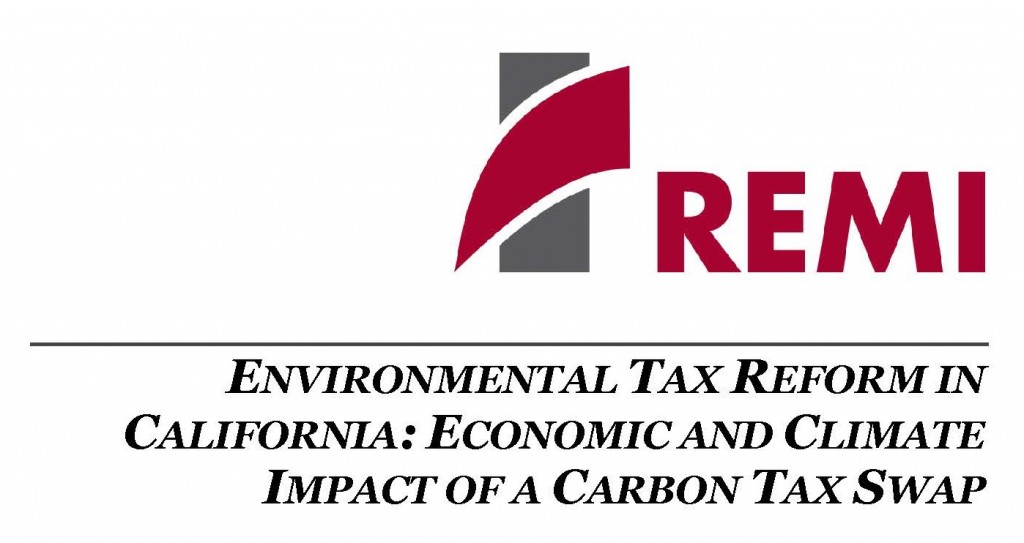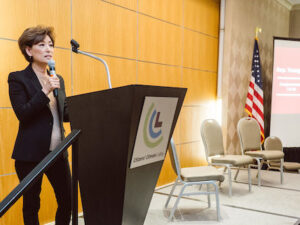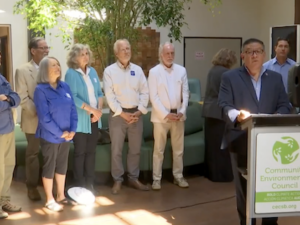F O R I M M E D I A T E R E L E A S E
Study shows a revenue-neutral carbon tax would grow economy, increase jobs in California
SAN DIEGO, MARCH 3, 2014 – An aggressively-priced carbon tax in California, with revenue returned to the public, would actually grow the state’s economy and increase jobs, according to a new study released by Citizens’ Climate Lobby.
The study, prepared for CCL by Regional Economic Models, Inc. (REMI), looked at the economic impact of revenue-neutral taxes that start low and level off at $50-, $100- and $200-per-ton on carbon-dioxide emissions. In each case, the study examined two methods of revenue return – across the board cuts to income, sales and corporate taxes (ATB) and direct payments to households through a fee and dividend (FAD) system.
Under the most aggressive scenario – a carbon tax steadily rising to $200 per ton of carbon-dioxide by 2035 – the study found that the “tax swap” could add 300,000 jobs in California, increase annual GDP in 2035 by $18 billion, increase annual income by $16 billion by 2035, and reduce carbon emissions to less than 75% of 1990 levels.
“Detractors have said over and over that a carbon tax will tank the economy and kill jobs,” said Mark Reynolds, Executive Director of Citizens’ Climate Lobby. “This study blows that assumption out of the water. It shows that a carbon tax will actually create jobs and be good for the economy, provided the revenue from that tax is recycled back into the economy.”
Under the Fee and Dividend scenario – revenue returned directly to households – the $200-per-ton tax would see a net gain of 236,000 jobs in California by 2035 with GDP up by $2.5 billion annually.
The REMI study does not suggest that a carbon tax should replace California’s cap-and-trade system set up under AB 32. In fact, the study says “it is perfectly possible for the two to coexist and reinforce the same objectives of reducing carbon emissions (both policies).”
Last summer, REMI prepared a similar report about the effect of revenue-neutral carbon taxes in Massachusetts – the highest scenario $45 per ton of CO2 – which found that, like the California study, the state would see an increase in jobs and GDP. Since then, three of the five Democratic candidates for governor in Massachusetts have announced their support for a carbon tax.
“Economists from both ends of the political spectrum have argued that a carbon tax, with revenue returned to the public, is the most efficient and effective way to reduce emissions that are changing our climate,” said Reynolds. “We now have the studies to back up those assertions, and there will be more to come.”
Citizens’ Climate Lobby, a non-partisan advocacy organization with more than 150 chapters in North America, advocates for a national revenue-neutral carbon tax and will hold its 5th international conference in Washington D.C. June 22-24. CCL plans to have volunteers meet with every congressional office on Capitol Hill.
CONTACT: , 404.769.7461
Download a copy of the California REMI report here:
Contact information for Mark Reynolds:








